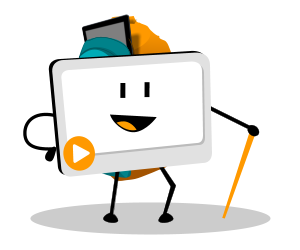Multiple Intelligences
Imagine a world where everyone is the same, has the same talents and is equally smart in the same manner. Everyone would want to follow the same career path, there would be no diversity. Diversity is what our social life is built on, different strengths and weaknesses that enable different human natures to follow their passions, their talents, and contribute to our society. However, schools sometimes lack the ability to value intelligences besides being good at math or languages.
Howard Gardener considers different strengths that contribute to multiple intelligences, that not only involve mathematical or linguistic skills, but consider other aspects of learning and development. All nine intelligences have different foci and are therefore unique.
Multiple Intelligences
Naturalist (nature smart): understanding nature and living things
Logical-mathematical (number/reasoning smart): quantifying different things to hypothesize and try to prove them
Interpersonal (people smart): being able to sympathize, empathize, sense, and read people’s feelings and motives
Intra-personal (self smart): understanding yourself, your feelings, and your wants and needs
Musical (sounds smart): having the ability to recognize musical sounds, tone, pitch, timbre, and rhythm
Bodily-kinesthetic (body smart): having the ability to coordinate the body and mind
Linguistic (word smart): effective communicator who can express what they mean
Existential (life smart): asking philosophical questions about life’s purpose
Spatial (picture smart): having a 3D visualization of the world
Does that mean that we should have different learning tools for each type? No, what it means is that everyone has a skill that should be valued and shared. It brings us back to diversity and collaboration. Using the mysimpleshow tool for instance makes visible how easily it can be implemented, adjusted, and used for all intelligence types.
Using Video to Enhance Multiple Intelligences
The idea of creating videos is to share knowledge and to write about something important. The tool has different phases that tackle different strengths. Let’s identify how we can use the different intelligences for the different parts of the process.
- 1. The process requires someone to guide the team on a personal level (people smart).
- 2. The intelligence of intra-personal also comes into play as you need to understand yourself first before taking over a group of people.
- 3. Whatever the topic will be about you will need someone to come up with essential questions about life or the concept you are dealing with (life smart, nature smart).
- 4. The next step will be the writing phase requiring creativity and a talent for words (word smart).
- 5. For the visualizing stage we draw the connection with several intelligences. For once we are in need of the spatial intelligence (picture smart) but also reasoning comes into play when deciding on the appropriate scribble, which words to visualize and how to set it up later for the video.
- 6. As any good movie, the audio part plays a big role as well. This does not only relate to actual music but includes, sounds and voices that will be detected in the audio stage of mysimpleshow (sound smart).
- 7. In a small manner we are even using the body smart dimension as we connecting our brain with our body movements while creating the video.
This is just one example that demonstrates how we can use different intelligences to produce a common product or result. Gardener’s model is not free of criticism as even today many questions arise whether all those abilities should really be counted as intelligences. However, you may agree or disagree but what we can say for certain is that modern tasks require us to use different skills and collaborate to find solutions for problems. Everyone has a talent and everyone has potential to enhance their weaknesses and build on their strengths.





